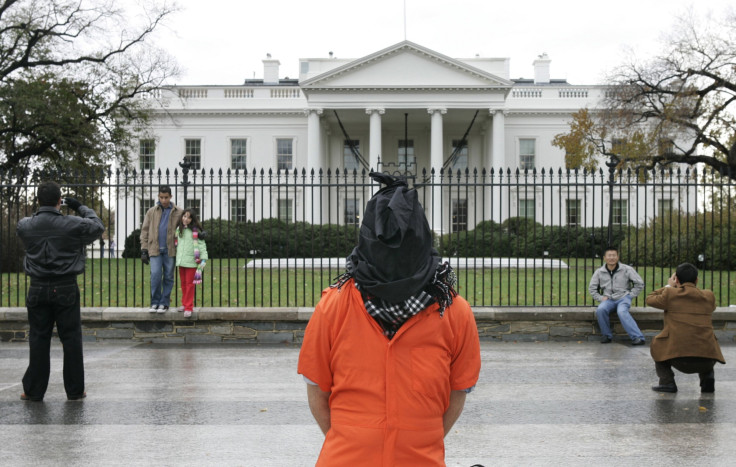US Torture Policies Under Investigation By UN Panel For Black Sites And Areas Outside Sovereign Territory

Legal obligations against torture apply to places such as Guantanamo Bay and other detention facilities outside the United States, Obama administration representatives acknowledged Wednesday. The representatives told a U.N. panel that the Convention Against Torture and Other Cruel, Inhuman or Degrading Treatment or Punishment applies to “certain areas beyond” its sovereign territory, as well as to places the U.S. government “controls as a governmental authority.”
The U.S. is currently undergoing a two-day review of its compliance with cruel and unusual punishment standards by the United Nations Committee Against Torture. The committee is questioning the U.S. delegation about accountability for torture, abuses and indefinite detention at Guantanamo Bay and lack of redress to survivors of torture, according to the American Civil Liberties Union.
U.S. representatives to the U.N. are expected to be pressed further on the limits of those obligations and whether they apply to so-called black sites or temporary detention facilities the U.S. has used in the past.
“We’re pleased that the Obama administration has affirmed the global ban on torture and cruelty, but it must go a step further and clarify that its treaty obligations apply to all official U.S. conduct, especially where the U.S. has effective control abroad,” Jamil Dakwar, ACLU's human rights program director, said.
The position is a departure from the Bush administration’s, which said that the treaty only applied inside the United States. Tomorrow, U.N. Committee members are expected to press the United States to further clarify its position.
Dakwar, who is attending the proceedings in Geneva, told International Business Times that he expects U.S. representatives to be pressed on clarifying the scope of statements on what territories will be governed by the rules of the convention.
“Does it include places of temporary detention or short-term detention? Does it include places where there’s not necessarily a recognized government authority?” said Dakwar. “We know it applies to registered ships and aircrafts, [but] what if they are not registered? What does that mean? Does it apply to former black sites that we know now existed in several places around the world?”
The committee also raised concerns about domestic policies, including the use of solitary confinement, militarization of police forces and use of force by law enforcement. The committee expressed additional concerns related to the expansion of family detention for migrants as well as abusive confinement conditions, especially for immigrants and specific groups such as women, juveniles, LGBT people, asylum seekers and people on death row.
On Tuesday, the committee took private testimonies from death penalty experts, anti-torture activists, former Guantanamo Bay detainee Murat Kurnaz, as well as the parents of Michael Brown, the black teen who was killed by a white officer in August in Ferguson, a suburb of St. Louis.
The 10-member panel is responsible for examining the records of the U.N.'s 156 member nations who have signed the U.N. Convention Against Torture, a treaty that bans all "cruel, inhuman or degrading treatment or punishment," AP reported. The treaty came into effect in 1987, and the U.S. signed it in 1988 and ratified it 1994.
Mary McLeod, the State Department's acting legal adviser, said that the record of the U.S. after the 9/11 attacks, "did not always live up to our own values," AP reported. "As President Obama has acknowledged, we crossed the line, and we take responsibility for that.... "The United States has taken important steps to ensure adherence to its legal obligations." McLeod said.
© Copyright IBTimes 2025. All rights reserved.





















